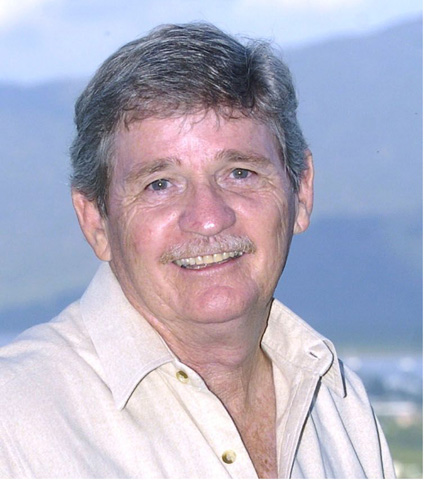.
THE
INTERNATIONAL CRIMINAL COURT
‘GREEN
LIGHT’ TO OVER-RULE AUSTRALIA’S HIGH COURT
The
Constitution established Australia’s High Court as the highest in the land.
But appeal was allowed in particular cases to the Privy Council… a Crown
appointed body of experienced men and women drawn from Commonwealth countries
including Australia. The Privy Council could not consider any matter unless
asked to.
Under
the Whitlam administration the right to appeal to the Privy Council was
abolished. The argument was that jurisdiction in Australia should be exclusively
Australian, going no further than Australia’s borders. As a sovereign country
we legislated and applied our own laws in accordance with the 'will of the
people'.
Strange
then, to have the Howard Government, under pressure from the then Department of
Foreign Affairs and the Attorney-General’s Department, headed by Alexander
Downer and Darryl Williams respectively, ratifying an International Criminal
Court, with powers to over-rule Australia’s own High Court!
AUSTRALIA’S
RELATIONS WITH THE UNITED NATIONS
In
June 2001 the Joint Standing Committee on Foreign Affairs, Defence and Trade
tabled its report on “Australia’s Role in United Nations Reform”. The
Committee consisted of 17 Senators and 22 Members of the Lower House. Their
hearings started on November 15, 1999. A special sub-committee was established
to deal specifically with the issue.
Among
a number of contentious issues was the International Criminal Court. After its
deliberations the Joint Standing Committee recommended that Australia ratify the
Treaty. The Recommendation read: “The
committee commends the Australian Government for its contribution to the
development of the International Criminal Court and recommends that the
Government ratify the Statute of Rome as soon as possible.”
But
four parliamentarians included a dissenting report. They were Andrew Southcott,
Geoff Prosser, De Anne Kelly, and Andrew Thomson. Their report highlighted the
fact that the dissenters were motivated by a concern for Australia’s own
sovereignty… increasingly discounted by the majority of federal politicians.
Their
report cited a letter of dissent signed by 12 prominent American administrators,
which read:
-
“This
legislation is an appropriate response to American sovereignty and
international freedom of action posed by the International Criminal Court
(ICC). The many obvious defects in the treaty establishing the ICC compelled
the Clinton Administration to withhold signature of the treaty when it was
concluded two years ago in Rome.
-
Naturally
we think it is essential that our nation’s military personnel be safely
beyond the reach of an unaccountable international prosecutor operating
under procedures inconsistent with our Constitution.
-
War
crimes and other human rights violations have long been subject to criminal
penalties under U.S. law, and the United States has a far better record of
enforcing its laws against human rights violations than some of the
countries that support the ICC.
-
As
former senior US Government officials, however, we think it is equally
important that the President, cabinet officers, and other national security
decision makers not have to fear international criminal prosecutions as they
go about their work.
-
The
risk of international criminal prosecution will certainly chill
decision-making within our governments, and could limit the willingness of
our national leadership to respond forcefully to acts of terrorism,
aggression and other threats to American interests.
-
Indeed
we believe that American leadership in the world could be the first casualty
of the ICC.”
The
letter was signed by Lawrence Eagleburger, Brent Scowcroft, Casper Weinberger,
Zbigniew Brzezinski, R. James Woolsey, Jeane Kirkpatrick, Henry Kissinger,
Donald Rumsfeld, Richard V. Allen, George Schultz, James Baker, and Robert
Gates.
DANGERS
TO AUSTRALIA
The
four dissenters expressed concerns that:
-
“…
the Constitutional ramifications of this treaty have not been fully
considered in the normal political process in Australia.
-
What
will be the status of decisions by the ICC? Will they be binding or
persuasive? This appears to be a puzzling contradiction.
-
The
Australia Acts of 1975 and 1986 abolished the Privy Council as a court of
final appeal for Australian courts.
-
Although
the Judicial Committee of the Privy Council is no longer part of the
Australian legal hierarchy, and its decisions are therefore persuasive only,
the proposed ICC and its decisions would appear to constitute binding
precedent in Australian common law by virtue of the ICC’s paramountcy over
any Australian investigation or prosecution.
-
We
find this paradox unacceptable….”
Their
argument is emphasised by Section 75 of the Constitution,
which reads:
-
Original
jurisdiction of High Court
-
75.
In all matters:
-
(i)
Arising from any treaty;
-
(ii)
Affecting consuls or other representatives of other countries:
-
…
the High Court shall have original jurisdiction.”
High
Court Justice Deane, in Polyukhovich v The Commonwealth of Australia (172 CLR
501 F.C.) made the point that:
“….
the Court has not had occasion in the past to examine the extent to which Ch.
III of the Constitution is applicable in relation to the trial and punishment of
persons accused of crimes against international law….”
That
being so, the whole process of treaty making by cabinet and bureaucrats should
be subject to some process whereby the provisions of the Constitution are not
compromised. The International Criminal Court however lofty its rhetoric, is
almost certainly a body whose powers, could further diminish the Australian
Constitution.
The
harsh reality of the implications of the International Criminal Court will
become evident when an Australian soldier, in the course of his duties, and
'under orders', commits an offence subject to scrutiny by the ICC, is extradited from Australia,
charged, and sentenced... possibly to death.
Is
the United States of America a signatory to the ICC... NO!
I
am totally opposed to Federal Legislation sanctioning the
International Criminal Court, and will vehemently seek the repealing of this
outrageous International Treaty.
![]()
![]()



